The Βι¶ΉΤΌΕΔ was the first UK broadcaster to measure and publish data on the socio-economic diversity of its staff, and is the only media organisation listed in the top 50 Social Mobility Employers Index, having been included for the second year running.
While data provided by The Bridge Group shows there is more socio-economic diversity at the Βι¶ΉΤΌΕΔ than in comparable professions and organisations including journalism, the creative industries and other UK broadcasters, more can be done to reflect the socio-economic diversity of the UK.
To support inclusion at entry level, the Βι¶ΉΤΌΕΔ has introduced a new policy to pay travel and food expenses for those on work experience. Additionally, the corporation already offers travel expenses for interviews for apprenticeships schemes and entry-level roles.
A number of strengths in the Βι¶ΉΤΌΕΔ’s recent work to improve the socio-economic diversity of its workforce were identified by the review and include:
- An investment of over Β£7m in 2017, rising to Β£12.7m in 2018, on entry-level schemes and apprenticeships, with currently in excess of 330 apprentices and trainees employed across the organization
- Ring-fenced work experience placements for unemployed young people via Job Centre Plus
- Voluntarily collecting and publishing data on the backgrounds of those who make up the Βι¶ΉΤΌΕΔ workforce
- Significant outreach work with young people, including visiting over 1,000 schools with School Report to help children develop media literacy skills
- Βι¶ΉΤΌΕΔ Radio 1 Academy events designed to inform 16-19 year-olds about working in the creative industries and Βι¶ΉΤΌΕΔ career opportunities at events like the World Skills Show attended by over 80,000 socially diverse young people
Based on the review’s findings, the Βι¶ΉΤΌΕΔ’s Executive Board has accepted a range of recommendations that are designed to further increase the socio-economic diversity of the Βι¶ΉΤΌΕΔ workforce, and are looking into the viability of introducing a career mobility programme throughout the Βι¶ΉΤΌΕΔ to promote high performing talent. Other recommendations include:
- Aiming to provide at least 70 percent of places on apprenticeships, traineeships, internships and work experience for people from lower socio-economic backgrounds
- Developing outreach and Corporate Social Responsibility activities to make them more cohesive, and contribute to reinventing the Βι¶ΉΤΌΕΔ
- Stepping up work to make sure recruitment practices are inclusive with regard to socio-economic diversity and give this the same level of support and measurement as protected characteristics like BAME and disability
- In-depth reviews into all Βι¶ΉΤΌΕΔ divisions with low Socio-Economic diversity
Alan Davey, Controller, Βι¶ΉΤΌΕΔ Radio 3, Βι¶ΉΤΌΕΔ Proms, Βι¶ΉΤΌΕΔ Orchestras and Choirs, and Project Sponsor, says:
This report, its subject matter and the conclusions it makes, are important - not just from the point of view of fairness but also for the future of the Βι¶ΉΤΌΕΔ as a creative organisation. Unless we draw on talent from all backgrounds, and with a variety of different experiences in life, we will not be doing as well as we can do in delivering great things for audiences who pay the licence fee.
This review is one of a number of culture and career progression projects which have also looked at gender, ethnicity, disability and LGBT issues. Following the publication of the final report on disability recommendations from these workstreams overlap and will be brought together in one delivery plan to support the career progression of staff across the Βι¶ΉΤΌΕΔ.
Download the PDF
- October 2018
Reports
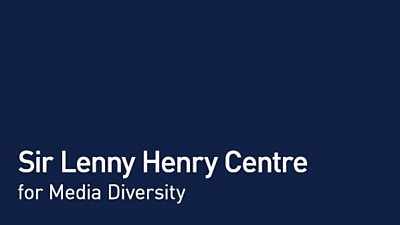 B.A.M.E. Terminology Review ReportB.A.M.E.: A report on the use of the term and responses to it. Terminology Review for the Βι¶ΉΤΌΕΔ and Creative Industries
B.A.M.E. Terminology Review ReportB.A.M.E.: A report on the use of the term and responses to it. Terminology Review for the Βι¶ΉΤΌΕΔ and Creative Industries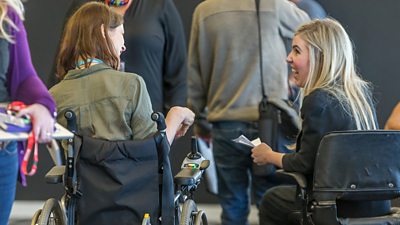 Report on career progression and culture for disabled staff at the Βι¶ΉΤΌΕΔA report on plans to help disabled staff succeed and progress at the Βι¶ΉΤΌΕΔ, published in November 2018.
Report on career progression and culture for disabled staff at the Βι¶ΉΤΌΕΔA report on plans to help disabled staff succeed and progress at the Βι¶ΉΤΌΕΔ, published in November 2018.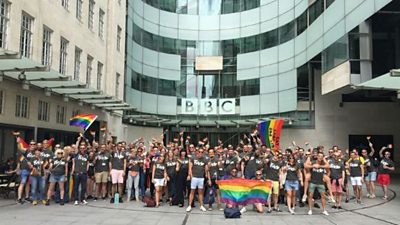 LGBT culture and progression reportA report on plans to make the Βι¶ΉΤΌΕΔ an even more inclusive workplace for LGBT staff, published in October 2018.
LGBT culture and progression reportA report on plans to make the Βι¶ΉΤΌΕΔ an even more inclusive workplace for LGBT staff, published in October 2018.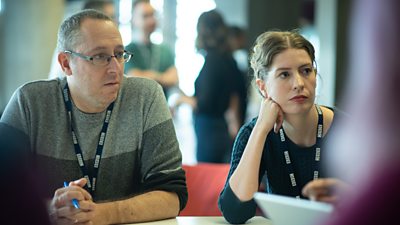 Reflecting the socio-economic diversity of the UK within the Βι¶ΉΤΌΕΔ workforceA report on the career progression of Βι¶ΉΤΌΕΔ employees published in October 2018 setting out action the corporation is taking to help staff from lower socio-economic backgrounds to reach their full potential.
Reflecting the socio-economic diversity of the UK within the Βι¶ΉΤΌΕΔ workforceA report on the career progression of Βι¶ΉΤΌΕΔ employees published in October 2018 setting out action the corporation is taking to help staff from lower socio-economic backgrounds to reach their full potential.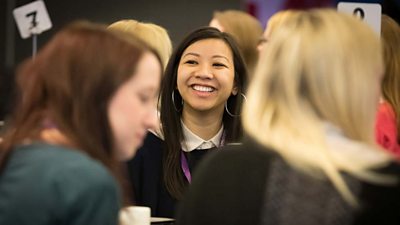 Making the Βι¶ΉΤΌΕΔ a great workplace for womenA report on career progression and culture for gender equality at the Βι¶ΉΤΌΕΔ, published in October 2018, focusing on culture and progression for staff in the Βι¶ΉΤΌΕΔ, with a particular focus on women.
Making the Βι¶ΉΤΌΕΔ a great workplace for womenA report on career progression and culture for gender equality at the Βι¶ΉΤΌΕΔ, published in October 2018, focusing on culture and progression for staff in the Βι¶ΉΤΌΕΔ, with a particular focus on women. Equality Information Report 2017/18Our annual Equality Information Report provides an update on the progress in relation to equality, diversity and inclusion for our workforce.
Equality Information Report 2017/18Our annual Equality Information Report provides an update on the progress in relation to equality, diversity and inclusion for our workforce. Statutory gender pay gap report 2018A report shows the Βι¶ΉΤΌΕΔ’s gender pay gap has been reduced by nearly a fifth over the past year, as the Βι¶ΉΤΌΕΔ sets out its commitment to leading the way on gender equality.
Statutory gender pay gap report 2018A report shows the Βι¶ΉΤΌΕΔ’s gender pay gap has been reduced by nearly a fifth over the past year, as the Βι¶ΉΤΌΕΔ sets out its commitment to leading the way on gender equality.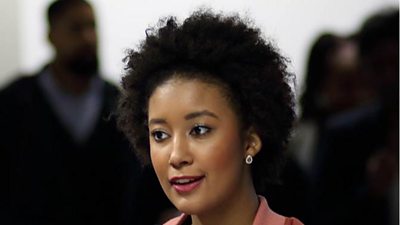 Reflecting the ethnic diversity of the UK within the Βι¶ΉΤΌΕΔ workforceA landmark report on career progression and culture for staff from a black, Asian and minority ethnic (BAME) background.
Reflecting the ethnic diversity of the UK within the Βι¶ΉΤΌΕΔ workforceA landmark report on career progression and culture for staff from a black, Asian and minority ethnic (BAME) background.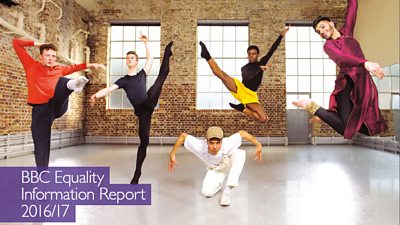 Βι¶ΉΤΌΕΔ Equality Information Report 2016/17The Βι¶ΉΤΌΕΔ’s annual Equality Information Report is published in July each year.
Βι¶ΉΤΌΕΔ Equality Information Report 2016/17The Βι¶ΉΤΌΕΔ’s annual Equality Information Report is published in July each year.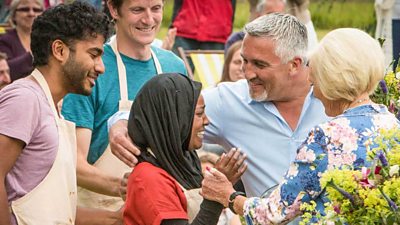 Previous Diversity and Inclusion Strategy 2016-2020The Βι¶ΉΤΌΕΔ's previous Diversity and Inclusion strategy for 2016-2020
Previous Diversity and Inclusion Strategy 2016-2020The Βι¶ΉΤΌΕΔ's previous Diversity and Inclusion strategy for 2016-2020
